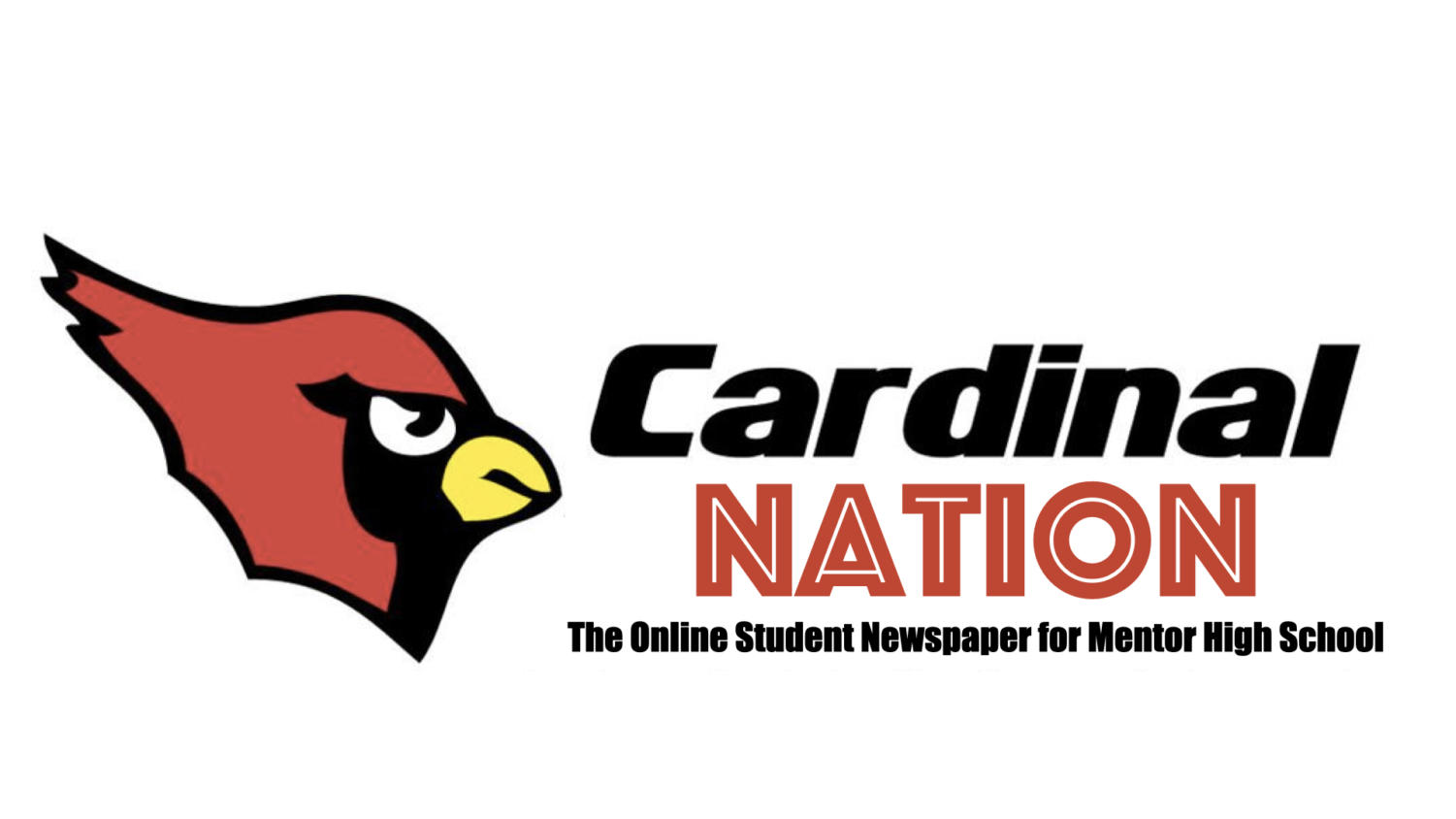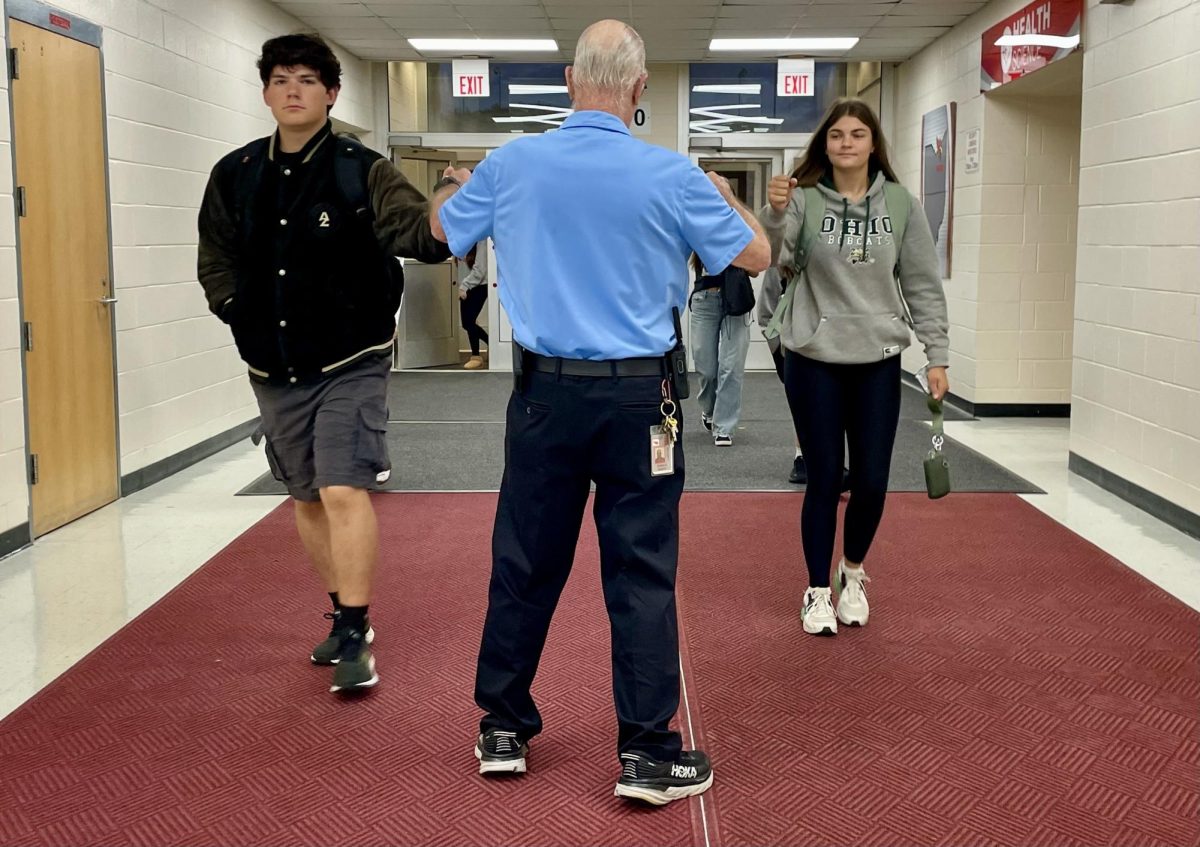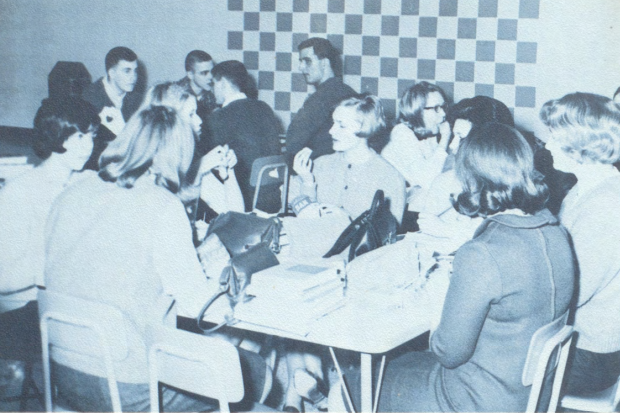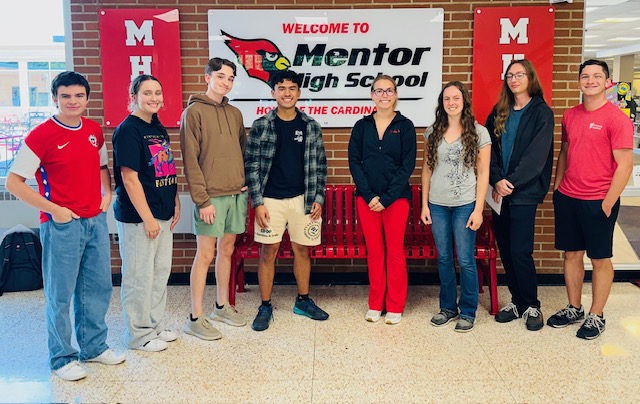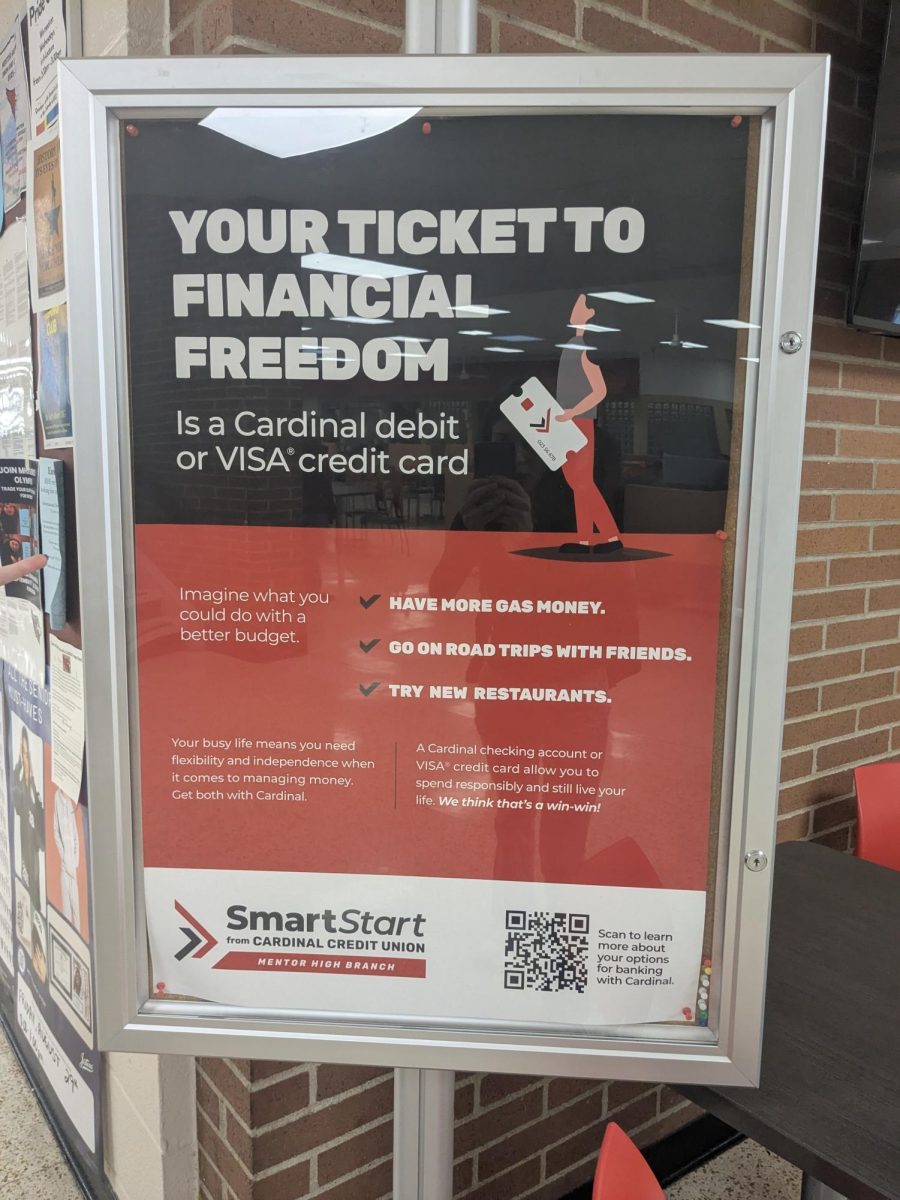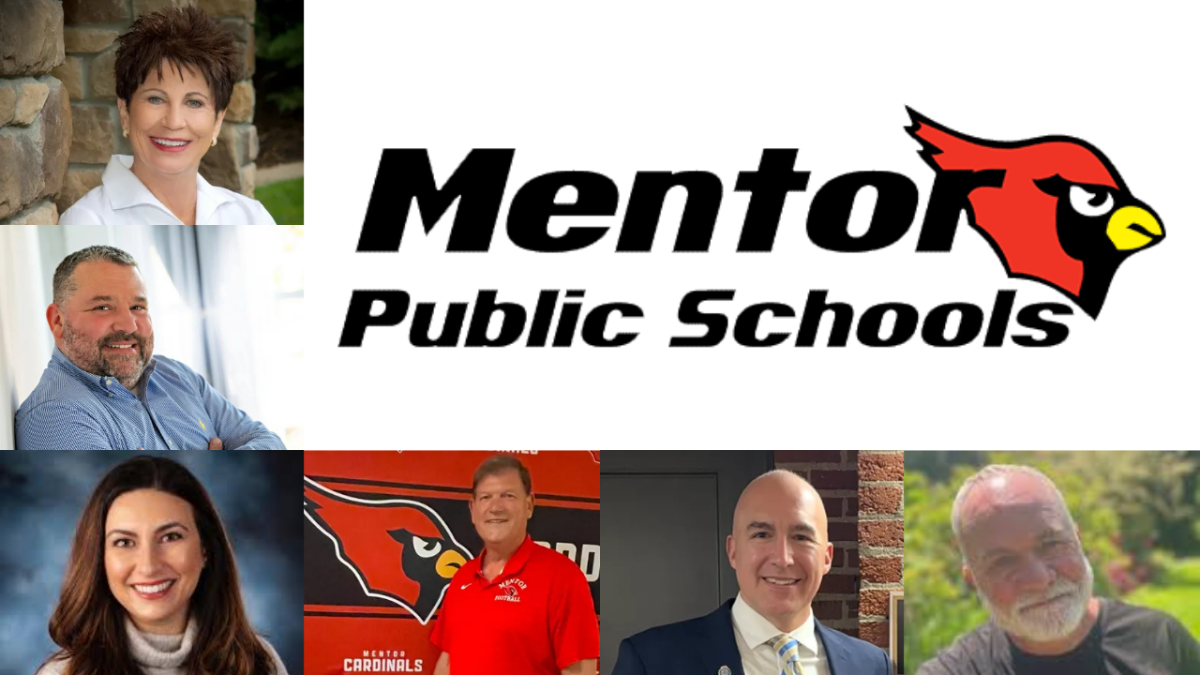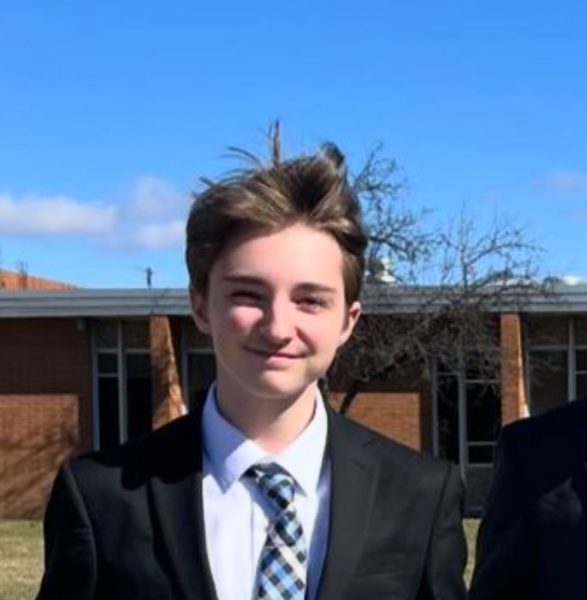From across the globe, foreign students flock to Mentor High School (MHS) to study alongside American students, helping them to gain a broader understanding of international cultures and experiences. Flying thousands of miles across vast oceans and landmasses, coming from various backgrounds, ethnicities, and cultures, these students put in hundreds of hours not only preparing for the trip but also learning the language and native way of life.
Thus, to understand the World of Foreign Exchange Students, let’s look at the perspectives of students, host families, and the MHS community regarding foreign exchange student programs such as AFS and ISE.
An Administrator’s View
To begin, Cardinal Nation reached out to Jason Crowe, Mentor High School’s Principal, through e-mail for his view on the topic to help outline the multiple programs and their benefits.
Cardinal Nation: What is a short and general description you would give of the programs and their overall potential benefits for foreign students?
Mr. Crowe: The benefits for both students attending MHS as a foreign exchange student and our students are the opportunities to learn from one another and expand their knowledge of another culture.
Cardinal Nation: What specific academic advantages would foreign students receive at MHS that would otherwise be unavailable at their home school? (offered courses, programs, extracurriculars, etc.)
Mr. Crowe: Depends on their home country and school system, but typically it’s the traditional American high school experiences such as dances and extracurricular activities.
Cardinal Nation: How do foreign students benefit from exposure to different people, cultures, and languages, such as being able to grow as individuals and form new relationships?
Mr. Crowe: Students get to experience a new culture and make lifelong friendships through their host family and the friends they make at school and their exchange program.
Cardinal Nation: What benefits does the presence of foreign students bring to the MHS and surrounding community, such as cultural diversity and increased learning opportunities for MHS students?
Mr. Crowe: It provides our students the opportunity to engage with someone from a different part of the world who can share their culture and experiences.
Mr. Crowe deeply voiced his support for the program, noting its benefits not only for the foreign students but for Mentor students as well. However, not only do students benefit, but an even wider surrounding community is affected as well.
Host Families
Many people behind the scenes work tirelessly to support and care for these students after they travel, for some, thousands of miles. The students’ caregivers, labeled as “hosts,” are the kindhearted souls who take the teenagers into their own homes, treating them as their own children. These people are responsible for the majority of the student’s well-being during their stay, including necessities such as food and water, but also recreation and other activities.
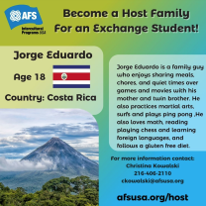
The Lee family, who has hosted 3 students in the past 10 years, says that before accepting a student, they scroll through the various student options on the AFS Intercultural Programs Website to see who would best mesh with their family lifestyle. According to Mrs. Ulla Lee, a host family is given general information on the student, such as hobbies. After the student packs their bags to head to Mentor, the host family makes preparations to receive them, which are verified through “several hours of certification and tests, a background check, a home visit” and more. Upon their arrival, students are met with a warm welcome from the host family at the location they first meet. The first two of the Lee’s foreign students were greeted in the parking lot of a Home Depot! The host family often holds a sign saying “Welcome to America” and gets to know their new family member through small talk in the car ride home.
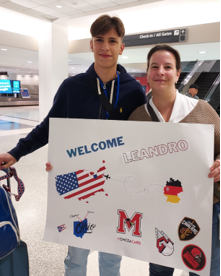
After the student gets acclimated to the new culture, which the Lee family notes normally happens very quickly, stating “You usually see a huge improvement in language skills after 3 months, and then a social emersion after 6-7 months” according to Mrs. Lee, they begin meeting other foreign students and potential friends during their stay.
Leandro Heinrich, the Lee family’s current exchange student, agrees that he was able to properly adjust to the new way of life, and even became close friends with Ava, one of the Lee family’s children and an MHS sophomore, as well as her group of friends. Cardinal Nation also got the chance to talk to Leandro about his experience in Mentor and about his background.
Talking to a Foreign Exchange Student
Editors Note: The responses from Leandro Heinrich are not direct quotes, but still accurately show his response.
Cardinal Nation: Do you currently enjoy being a foreign exchange student?
Leandro: Yes.
Cardinal Nation: Where are you from, and how does schooling in that nation differ from the United States?
Leandro: I am from Germany. My school used block scheduling during the day and had a lot fewer elective classes to take than MHS.
Cardinal Nation: Do you enjoy being in Mentor and did you get to choose where you went?
Leandro: Yes, I like Mentor. I did not get to choose where I went, it was mostly up to chance.
Cardinal Nation: What is your favorite and least favorite thing about living in America?
Leandro: I like the culture, but don’t like the lack of sufficient public transport.
Cardinal Nation: Do you have a favorite American food?
Leandro: Chicken sandwich and fries.
One can see that Leandro has enjoyed his time at MHS, even boasting a 100% grade in AP French in multiple quarters of the school year. Leandro is even on the track team at MHS. It’s helpful to note, as well, that the Lee family has deep roots in Germany, and Mrs. Lee can speak fluent German, making it easy to communicate with students, such as Leandro, when necessary. Overall, both Leandro and his host family have thoroughly enjoyed the process, with Ava Lee saying she “would 100% recommend hosting a student,” claiming though the experience can be frightening with inviting a stranger into your home, it creates a bond that will last a lifetime.
The Hosting Experience: A Few Questions
Finally, Cardinal Nation asked Mrs. Lee a few more short questions through e-mail regarding her family’s experience being a host family.
Cardinal Nation: Have you enjoyed hosting the student?
Mrs. Lee: Yes, I have. I believe it is a great way to learn about different cultures, but more so that we are much more similar, then we are different as human beings. It is awesome to have 3 “global” children I can call my own and the bond that we formed in short 10 months is something that can truly last a life-time. The memories you create are special, for the student, as well as for you and your family.
Cardinal Nation: Would you encourage other families to get involved in the program?
Mrs. Lee: Yes, I would love to see more families opening their homes and hearts to a foreign exchange student. It is such a cool experience that shapes your life. There is a lot of support for the students, so you don’t have to deal with problems, if they arise, all on your own. If you are unsure if it is the right thing, you could just be a “Welcome Family” and only commit to hosting for 3 months. If you and the student get along, you can decide to extend to the full length of the say. You could also volunteer first, as a liaison, which is a go-to person for the host student and the host-family. There to support both families. It is a nice way to get involved, if you don’t want to leap into it. Just do it! It is a fun experience. If you are interested go to afsusa.org/host
****************************************
The Lee family maintains close contact with their former exchange students, hosting monthly video calls to chat and planning an in-person meeting with former students over the summer.
A Second Foreign Perspective
Next, straying from the Lee family, Cardinal Nation messaged Nele Schuppe, an exchange student through International Student Exchange (ISE), another foreign exchange student program. Nele is labeled as an MHS senior and is an active member of the MHS community.
Cardinal Nation: How did you hear about the program, and what was the application process like?
Nele Schuppe: I looked in the intervener for programs and first choose AFS but because the process was way too complicated and really bad so we changed to ISE.
Cardinal Nation: What was the preparation like before coming to the US? (learning language, culture, etc.)
Nele Schuppe: I knew how to speak English pretty well but I did talk to my dad and other friends that [had] done exchange years before a lot to get more prepared.
Cardinal Nation: What nation did you come from, and how is school there different from at MHS?
Nele Schuppe: I’m from Germany, and the school is so much easier here, also it’s a lot more fun. School in Germany is only about learning without any understanding teachers.
Cardinal Nation: Did you get to choose where you traveled to?
Nele Schuppe: Yes I could choose which country but not the state or city.
Cardinal Nation: Do you enjoy living and going to school in Mentor?
Nele Schuppe: Yes I enjoy it very much especially because of all the nice people.
Cardinal Nation: Were you able to quickly and properly acclimate to the culture and language?
Nele Schuppe: Language yes but, especially to get used to the food took a while.
Cardinal Nation: What’s your favorite and least favorite part about the U.S.?
Nele Schuppe: My favorite part is all the sports here with a really friendly environment, and my least favourite part that is most of the food is so unhealthy.
Cardinal Nation: Are there any stereotypes about Americans that you learned in your home country?
Nele Schuppe: Yes that a lot of people are fat, or also that most American are really dumb and do not have a lot general knowledge about the world.
Cardinal Nation: Do you have a favorite food from America?
Nele Schuppe: Pancakes.
Cardinal Nation: Will you return to the U.S., and perhaps Mentor too, in the future after you return home?
Nele Schuppe: Yes I want to go to college in the U.S. and will for sure want to visit some of my friends in Mentor.
Cardinal Nation: What extracurriculars/clubs/sports do you participate in through MHS and the surrounding community?
Nele Schuppe: I play soccer and lacrosse.
Cardinal Nation: Have you enjoyed your time as a foreign exchange student?
Nele Schuppe: Yes!
Agreeing with Leandro, Nele expresses her enjoyment in participating in the foreign exchange student programs and is grateful to have had the opportunity. Even more, it is crucial to recognize the importance of MHS students being able to learn alongside foreign students, including the increased cultural diversity and educational opportunities. As mentioned previously, upon their arrival to the US, foreign students begin meeting new people, often other exchange students or children and friends of their host family.
Talking to a MHS Student
One student impacted by foreign exchange programs is sophomore Christopher Parks, who has become close friends with Leandro and many other exchange students from Mentor. Chris, despite meeting Leandro only about 8 months ago, already shares things in common, such as being on the track team together and playing Fifa. Cardinal Nation got the chance to message Chris regarding his bonds with foreign exchange students.
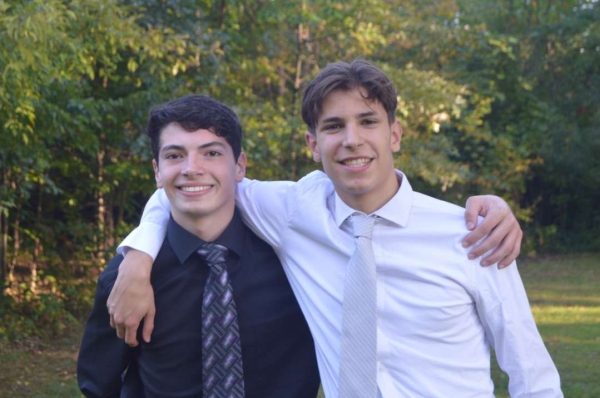
Cardinal Nation: How did you first meet Leandro and other foreign friends?
Chris Parks: I first met Leandro because his host family was my best friend’s family.
Cardinal Nation: What were your initial impressions?
Chris Parks: I was a bit intimidated by him at first but I then respected him a lot for being here, in a whole other country without family and friends.
Cardinal Nation: What benefits have you seen from the bonds you’ve formed with foreign exchange students?
Chris Parks: I see that I’ve [become] very interested in traveling the world and finding new experiences.
Cardinal Nation: What language or other barriers did you encounter?
Chris Parks: It is pretty hard to understand the accents. Some have stronger ones than others.
Cardinal Nation: What is your favorite experience with a foreign student that you are willing to share?
Chris Parks: My favorite experience was when I went to an amusement park with my foreign friend. I also enjoyed when I had a party with a group of exchange students.
Cardinal Nation: What bits of language have you picked up from your friendships with foreign students?
Chris Parks: I decided to attempt to learn some of their languages.
Cardinal Nation: How has being friends with foreign exchange students shifted your views on international cultures? (Stereotypes, prejudices, etc.)
Chris Parks: I learned to enjoy the tradition of other countries. I learned many things that foreigners thought about our country that [were] a bit correct.
Cardinal Nation: What have you learned about foreign cultures such as home and school life?
Chris Parks: I’ve learned that the school lives are much more intense and longer than ours. Some don’t spend much time away from studying. Their home lives are pretty similar to ours.
Cardinal Nation: Would you be interested in being a foreign exchange student?
Chris Parks: I am most likely to go study abroad in college. I think it’ll be a nice change and experience for me to try.
Cardinal Nation: Any final thoughts?
Chris Parks: I think that everyone should make an attempt to [be] friends with exchange students. They always tell me how much enjoyable it is with nice people and friends.
****************************************
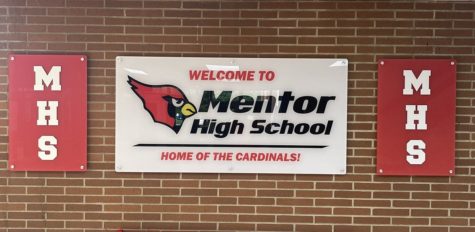
In the end, the benefits of exchange student programs can truly be seen after talking with many people involved in the programs. From host families to students both foreign and domestic, the programs’ benefits cannot be understated. Mr. Crowe offered a fitting conclusion to this deep dive, stating, “MHS has always been fortunate to have families in the community who want to host foreign exchange students who then attend our school. We look forward to continuing to welcome and celebrate foreign exchange students for years to come.” Thus, people around the community are highly encouraged to get involved in the World of Foreign Exchange Students not only for the benefits it brings to the students but the long-lasting bonds and relationships formed with friends and family along the way.
